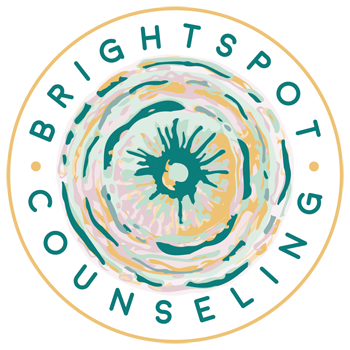I get it. Going to a new therapist can be a little intimidating. Whether it’s your first time in therapy, or you’ve been going on and off for years, it’s still tough to go meet someone brand new, tell your story, and trust them to help you. While every therapist is different, there are some things that you should be able to expect from a therapist, no matter who they are, and what you’re seeing them for, so I’ve put together a list of things any therapist can and should do for a client.
Listen
This one may seem obvious, but people as whole, are terrible at listening. Considering that therapists are people first (who knew?) they can occasionally struggle with “listening to respond” instead of “listening to understand” just like anyone else. If you get a sense that your therapist is trying to jump in when you’re still talking, or doesn’t really understand what you’re trying to say, rather than what they assume you’re trying to say, they may not be a good fit for you. To be fair, they may just be having an off day, but if you’re not feeling heard, you should do a little listening too…to your gut. It’s probably trying to tell you that your therapist isn’t a good fit.
MEET YOU WHERE YOU ARE
When you see a therapist, they should be helping with whatever issue you present them with (See the “let you lead’ bit of this essay). Toward that goal, they should be accepting of all of you, your beliefs, your orientation, your identity, of course. If you see a therapist or counselor who feels they need to change any fundamental part of you, I promise you that’s their problem, not yours.
LET YOU LEAD
Therapists are, of course, human beings. As such, we have opinions. So therapists sometimes have a tendency to think we know what you need to work on. I’ll let you in on a secret: That’s not how it’s supposed to work.
This is your time and your session, so it stands to reason that YOU should be the one deciding what you want to work on. A therapist may be able to see a bigger picture, and gently suggest that the issues you’re experiencing originate from a source you may not have considered, but what you want to work on is up to you.
Here’s the thing, though. You should go in with an open mind. If your therapist does gently suggest that to deal with the issue you feel is most pressing, consider that suggestion. Ask where it’s coming from, and if it seems reasonable, why not give it a try?
BE CURIOUS, NOT JUDGEMENTAL
Okay, so I stole this one from Ted Lasso (Seriously, how great is that show?) but it still fits. You should be able to tell your therapist the truth, even the unflattering truth. And your therapist should be willing to help you with that truth, in whatever capacity you need help.
Do you need to change a behavior? Yes, your therapist can help you work on that. Do you need to get past some guilt? Again, yes. However, your therapist should not be the person who piles on guilt after you’ve told your story. Judging you will not change your past, and it certainly won’t make you feel more comfortable about confiding in that therapist in the future, especially if you make a mistake or backslide, which is…well…human.
GIVE YOU TOOLS FOR YOUR TOOLBOX
Therapy isn’t a life sentence. A therapist’s goal should be to help you help yourself, and to work with you toward “graduating” from therapy. A good therapist will give you strategies, and other tools to deal with whatever is bothering you. They’ll also help you practice using those tools so when you’re not in therapy, you can deal with things on your own. Of course, the only thing that’s permanent is change, so if you feel yourself struggling despite the tools given, you’re always welcome to make an appointment again, even if you’ve “graduated”.
GIVE YOU THE BENEFITS OF OTHER’S EXPERIENCE AND EDUCATION
Therapists use tried, studied & tested evidence-based practices. So when your therapist recommends EMDR or CBT or whatever modality they think can help you through your particular situation, they’re not just guessing, or pulling it out of a hat. These methods are scientifically tested and have worked for people like you, many, many times. Matter of fact, I’ll share a little secret with you. There’s a very good chance that your therapist has been through the same therapeutic process themselves, and that’s a huge part of why they believe in it.
KEEP WHAT YOU TELL THEM CONFIDENTIAL
It’s true, what happens in therapy, stays in therapy. You should never have to worry that your therapist is at happy hour with friends, talking about your personal problem. Therapists are bound by licensing and ethics to keep what you tell us confidential. Matter of fact, if you go to happy hour, and see your therapist there, don’t be at all surprised if they don’t acknowledge you. Ethically, unless you approach us first we can’t even admit to knowing you. There are some extenuating circumstances that can force us to break confidentiality. Like if we clue in that you’re at risk of harming yourself, or someone else, or there’s a court order. But overall, your secrets are safe with us.
As I said at the beginning, seeing a new therapist can be stressful, but I hope this list helps give you a little insight into what to expect with a new therapist, and helps take away some of the stress of a new therapist. If you’ve been thinking about therapy, feel free to reach out to Bright Spot Counseling at 248-296-3104 and set up a consultation with one of our therapists!





